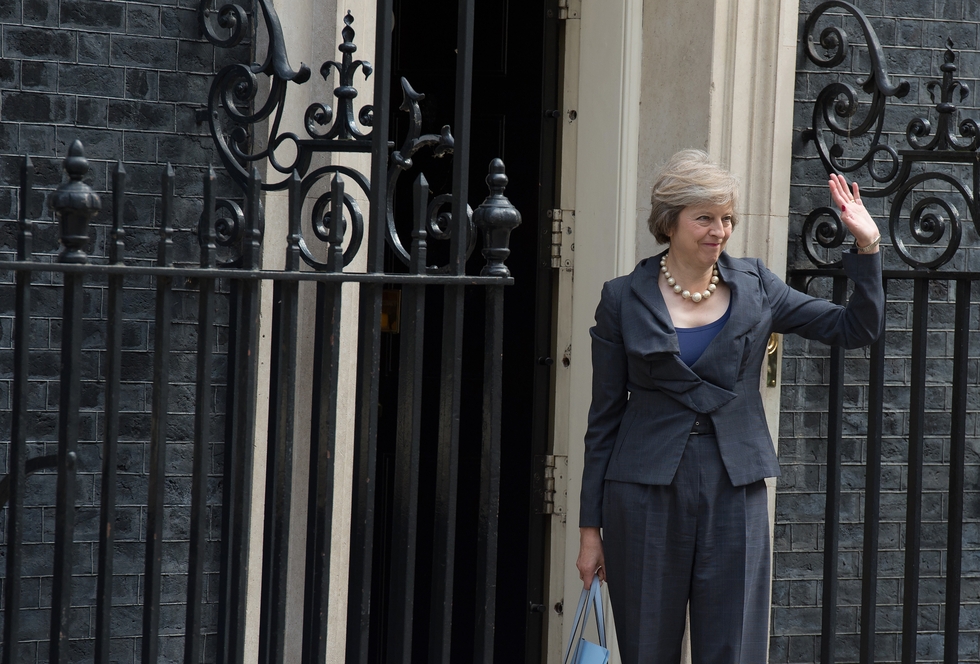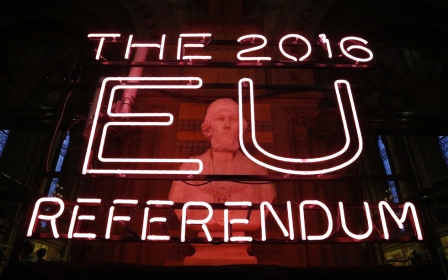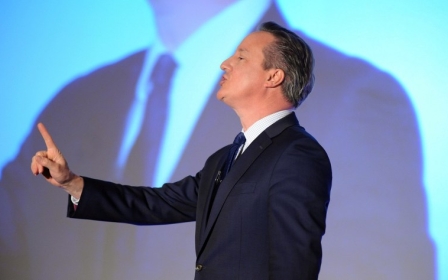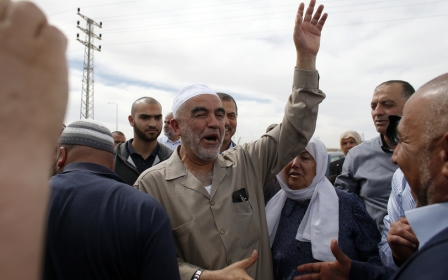Theresa May: Dull but dangerous

Theresa May, Britain’s next prime minister, is widely hailed today as the voice of common sense and steely pragmatism. In short, boring but competent.
This argument is half right. May is boring, no question about it. For example she has never demonstrated that she possesses vision or ideas.
Is she competent? I have been following her progress as home secretary for the last six years. She can be reckless with the facts. Take the example of Sheikh Raed Salah, an Israeli-Palestinian politician, who was invited to address a meeting in the House of Commons, a visit that was supported by Jeremy Corbyn.
May banned Salah on the grounds that he supported terrorism, had written an anti-Semitic poem, and constituted a threat to public order. Nevertheless he was able to enter Britain unhindered.
When May discovered this she slapped a control order on him, meaning he was detained under close house arrest for months.
In due course the Upper Immigration Tribunal found that May had been “under a misapprehension of the facts,” that he presented no threat and ordered his release.
Damagingly for May, it also emerged from the court hearing that she made her decision partly on the basis of information provided by the Community Security Trust, an organisation which combats anti-Semitism in Britain.
She appears to have made no attempt to balance its advice with a judgment from any Muslim or Palestinian organisation.
Worse still she made no attempt to check the allegations against Raed Salah - and reached her decision to impose a control order in a matter of minutes.
This was not an example of the kind of cool, calm, unbiased deliberation one expects from a cabinet minister. Unfortunately it is characteristic of the way May has too often conducted herself in office.
Consider her address to the 2011 Conservative Party conference, in the course of which she alerted her audience to the case of an illegal immigrant “who cannot be deported because – and I am not making this up – he had a pet cat”.
It turned out that she was indeed making it up. The immigrant she targeted, a Bolivian, did own a cat. But his feline companion was only one factor taken into account by the immigration tribunal that allowed him to stay in this country on human rights grounds.
May has made U-turns on any number of issues from the Human Rights Act to Brexit. As the Conservative columnist Peter Hitchens noted today, there is no hard evidence that she holds consistent opinions on any subject at all.
As a young unknown in the late 90s she was on the fashionable right of the Conservative Party, then turned into a fashionable modernising centrist, before in due course lurching back to the Tory right when that became fashionable once again.
Her biggest failing was immigration where she repeatedly promised to bring net migration below 100,000 a year.
After missing this target many times, in her Conservative Party conference speech last autumn May put the blame on the European Union for this failure. By any logical construction of her speech, this meant that she should have come out for Brexit. She failed to do this, then skulked during the referendum campaign, and culpably left her deputy, James Brokenshire, to deal with immigration.
Throughout all of this May has remained dull, something which perhaps worked in her favour at a time when Britain has been plunged into constitutional and political crisis. She has not inspired the enmities generated by much abler (and more charismatic) Conservative colleagues such as Michael Gove and Boris Johnson.
May’s most controversial policy concerns the unpopular Prevent strategy, which is designed to stop young people from being drawn into terrorism. It is not just Muslims who believe that Prevent risks alienating an entire community. So do others.
The fundamental analysis at the heart of Prevent is a linkage between Islamic violence to a wider set of ideas and behaviour that have nothing to do with violence.
As a result many Muslims have been investigated by the authorities when they have done nothing wrong at all. Tomorrow in the House of Commons a report from Rights Watch UK is expected to highlight the fact that children still in nursery school are being targeted.
So Muslims have reason to feel nervous about the prospect of Prime Minister Theresa May. So too should the country. Britain is about to embark upon an interesting experiment. We are about to discover whether competence and dullness are synonymous. For all our sakes, let’s hope they are.
- Peter Oborne was named freelancer of the year 2016 by the Online Media Awards for an article he wrote for Middle East Eye. He was British Press Awards Columnist of the Year 2013. He resigned as chief political columnist of the Daily Telegraph in 2015. His books include The Triumph of the Political Class, The Rise of Political Lying, and Why the West is Wrong about Nuclear Iran.
The views expressed in this article belong to the author and do not necessarily reflect the editorial policy of Middle East Eye.
Image: New British Conservative Party leader Theresa May at Downing Street on 12 July 2016 (AFP).
This article is available in French on Middle East Eye French edition.
New MEE newsletter: Jerusalem Dispatch
Sign up to get the latest insights and analysis on Israel-Palestine, alongside Turkey Unpacked and other MEE newsletters
Middle East Eye delivers independent and unrivalled coverage and analysis of the Middle East, North Africa and beyond. To learn more about republishing this content and the associated fees, please fill out this form. More about MEE can be found here.





